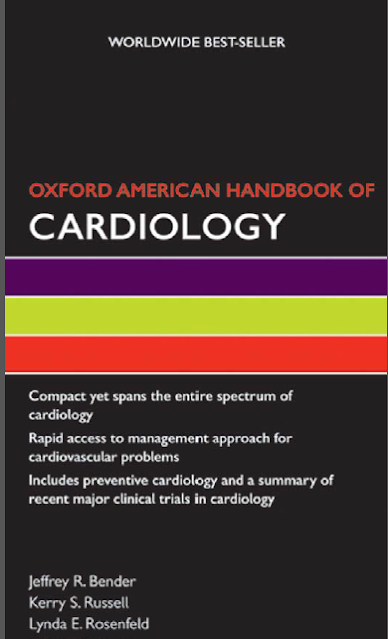In this post you can download pdf of Oxford American Handbook of Cardiology from here
Despite major advances in prevention and treatment, cardiovascular disease remains the leading cause of death in the United States. There are greater than 1.4 million myocardial infarcts per year. Furthermore, the incidence of atrial fibrillation and of heart failure is rising, in part due to increased survival following acute coronary events, to our aging population, and to other undetermined factors. Management of cardiovascular disease spans a wide range, from acute care of the hemodynamically unstable patient, interventions directed at acute coronary obstructions and electrically unstable rhythms, to disease prevention and care of the chronically ill. In an era of genome-wide scans and growing lists of cardiovascular disease genes, we still require a careful and detailed understanding
of disease pathophysiology and management.
In this Handbook, we attempt to represent this wide range of cardiovascular disease. We are fortunate to practice in this era of evidencebased medicine, in which care algorithms are developed and therapeutic approaches are carefully defi ned. The chapters of this Handbook provide the pathophysiological basis for many of these approaches, followed by delineation of management. Although these chapters will not replace the time-dependent accumulation of experience in clinical care, we hope that this Handbook provides easy and rapid access to many major day-to-day management approaches to patients with cardiovascular problems. We hope it will appeal to a broad range of clinicians in many settings, including the coronary care unit, interventional laboratories, emergency departments, and medicine units, both inpatient and outpatient. It's designed
a quick guide for practicing cardiologists, internists and their appropriate trainees. There should be enough space in the pockets of the white coat for the instructions
like that. We hope for cardiovascular healing bubbles it's easily pulled out of those white pockets and taken out of ours Handbook of Cardiology.

